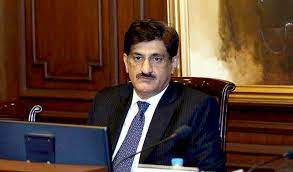Chief Minister Sindh, Syed Murad Ali Shah has said that education was the backbone of the socioeconomic development of any country and without tangible development and requisite advancements in this sector, a nation could not survive or thrive in the world. According to Chief Minister, his government was very much determined in bringing palpable improvement in the Education Sector which was evident from interventions by provincial authorities in this particular sector.
Realistically, education is the most important element for national development and plays a crucial role in the socio-economic uplift of any nation in the modern world. Pakistan, being a developing nation had always faced a lack of resources in the education sector, while the cumulative expenditures at both provincial and federal levels remained below 2 percent of the GDP throughout history. Although successive governments introduced multiple educational reforms, including the issuance of scholarships for talented and poor students, and the provision of free textbooks, teachers’ training, etc, however, those measures could neither produce the desired results in the past. In fact, the promotion of education is a collective responsibility of the government as well as society. The government needs to provide education facilities while parents need to send their wards to Schools and society must discourage child labor, so no children remain out of school.
Historically, Rural Sindh has a very low literacy rate while public sector educational institutions have very poor educational standards in the province. There are no or a little number of government schools in Rural areas, whereas, Education Department faces an acute shortage of trained educators and schools. Meanwhile, thousands of ghost schools and fake teachers had been reported across Sindh in the past, while a majority of them still exist, and their salaries are regularly being disbursed from the provincial kitty.
Recently, the Sindh government has recruited thousands of highly educated teachers, upgraded their pay scales, and offered better incentives to them to promote education in the region. However, concerted efforts and massive investment is needed in the education sector to provide better education facilities besides enforcement of discipline, continuous monitoring, along with stern accountability of teachers and higher executives, so, this most important national activity can flourish in the future.







